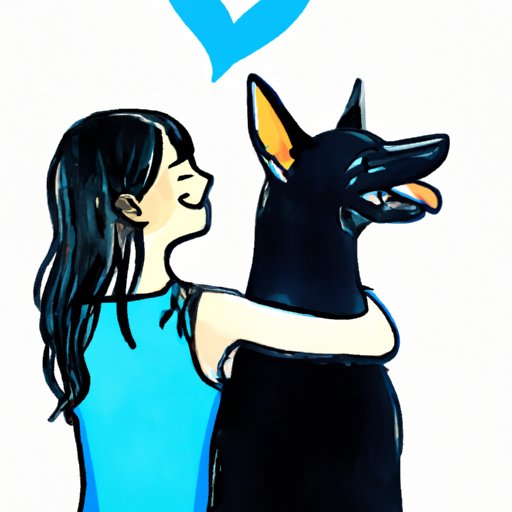The Unconditional Love of Man’s Best Friend: Why Dogs Love Humans
The relationship between humans and dogs is one of the oldest and most enduring bonds in history. Dogs have been man’s loyal companions for thousands of years, providing us with love, support, and protection. So, why do dogs love humans so much? This article explores the scientific, historical, and emotional reasons behind our furry friends’ attachment to us.
Scientific Research
Over the years, numerous scientific studies have been conducted to understand dogs’ affection for humans. These studies have revealed that dogs’ brains are wired to seek human social interaction and respond to human emotions. When a dog sees its owner, there is a surge of activity in the brain, specifically in the areas associated with rewards and positive emotions.
Furthermore, researchers have also discovered that dogs have a remarkable ability to read human emotions, body language, and verbal cues. They can detect joy, sadness, fear, and anger, and respond accordingly. For example, a dog may lick its owner’s face and wag its tail when they are happy, or put their head on their owner’s lap when they are looking for comfort.
Another interesting finding is the oxytocin, or “love hormone,” that is released in both dogs and humans during social interaction. This hormone promotes bonding and trust, which scientists believe is a contributing factor to the strong connection between dogs and their owners.
Personal Anecdotes
As any dog owner will tell you, the bond between a human and their pet dog goes beyond science. It’s an emotional, heartwarming connection that cannot be quantified. Many dog owners have shared stories of their furry friends showing them unconditional love and loyalty, even in the toughest of times.
For example, one owner recounted how her dog refused to leave her side during a particularly difficult period of her life. The dog would lie on the bed with her, gently nudge her with its nose, and provide comfort and support simply by its presence. Another owner described how her dog would jump up and down with joy when she returned home from work, expressing an excitement that no human could match.
These anecdotes reflect the incredible depth of the bond between dogs and humans. Dogs have a unique way of sensing our emotional needs, offering comfort and joy in ways that no other animal can.
History and Evolution
The history of dogs and humans dates back over 15,000 years, with evidence of domesticated dogs found across various ancient civilizations. Dogs were initially bred for specific purposes, such as hunting and guarding, but over time, they became valued members of the family, providing companionship and unconditional love.
As humans evolved, so did their relationship with dogs. Dogs were used for transportation, hunting, and even as a form of currency in some societies. They were trained to herd cattle and sheep, and even today, they serve as guide dogs for the blind and provide companionship for people with disabilities.
Interestingly, dogs have also evolved alongside humans, with different breeds being developed for specific tasks and environments. For example, huskies were bred to be sled dogs in the harsh Siberian environment, while chihuahuas were originally bred in Mexico for companionship and loyalty.
Comparison to Other Animals
While other animals, such as cats and horses, can also form strong bonds with humans, dogs have a unique ability to connect with their owners on an emotional level. Dogs are naturally social creatures and thrive on human interaction, which is why they are so popular as pets.
Dogs are also more attuned to human emotions and behaviors than other animals. They can read our body language, facial expressions, and tone of voice, and respond accordingly. This makes them excellent therapy animals, as they can help people who are struggling with emotional or psychological issues.
Psychology and Socialization
Psychology also plays a role in dogs’ attachment to humans. Research has shown that early socialization and positive reinforcement can have a significant impact on a dog’s behavior towards its owner. Dogs who are treated with kindness and respect are more likely to be affectionate and obedient.
To build a strong bond with your dog, it’s important to establish trust and respect. Training your dog using positive reinforcement techniques, such as praise and treats, can help to develop a sense of trust and cooperation. Spending quality time with your dog, taking them for walks, and engaging in playtime can also strengthen your relationship.
Conclusion
In conclusion, the bond between dogs and humans is a unique and special one that has stood the test of time. It is a connection that goes beyond science and reason, and is based on love, loyalty, and mutual support. By understanding the scientific, historical, and emotional factors that contribute to dogs’ attachment to humans, we can appreciate and nurture this special relationship, making it even stronger.
